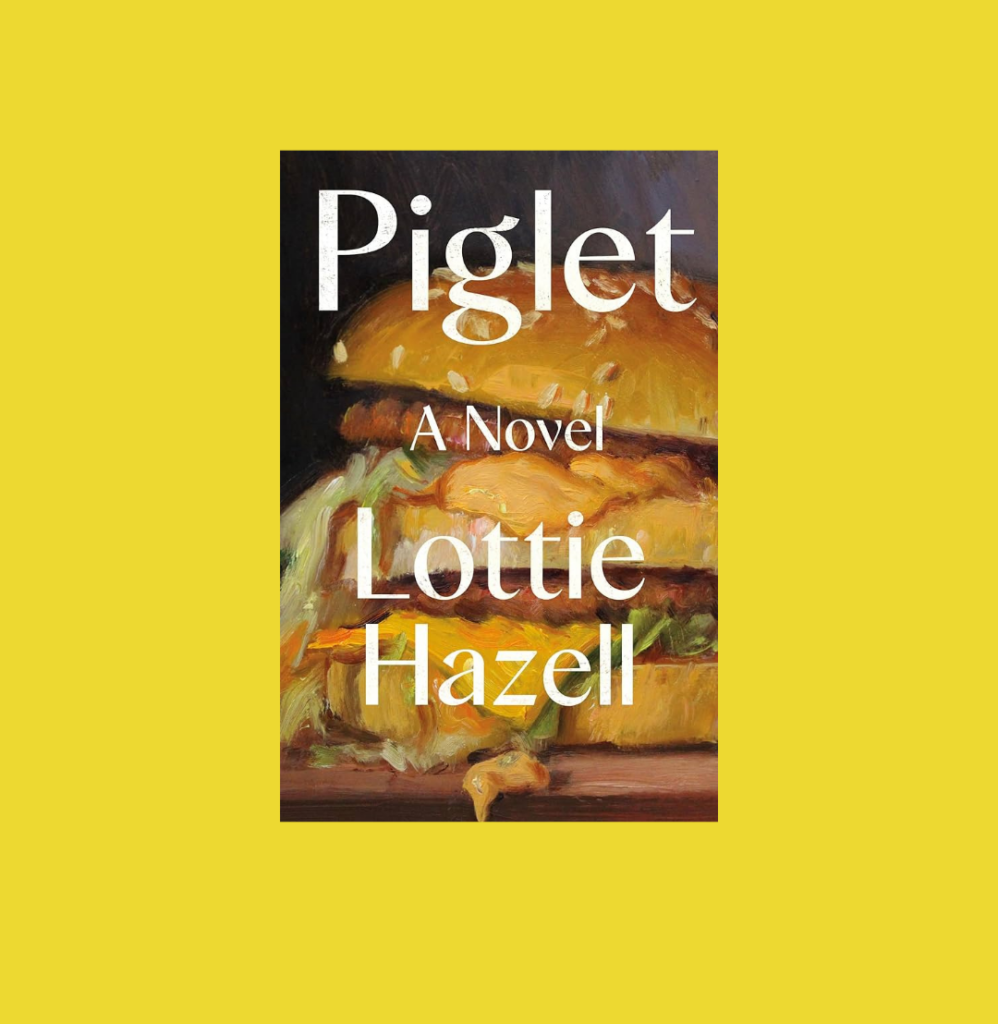This post may include affiliate links, which means we make a small commission on any sales. This commission helps Feminist Book Club pay our contributors, so thanks for supporting small, independent media!
cw: eating disorders
Piglet and Filling the Cracks When Things Fall Apart
Lottie Hazell’s Piglet is a sharp, gripping read about betrayal, identity, and what happens when your perfect life crumbles in a swift moment. On the surface, the novel is about Piglet’s world unraveling two weeks before her wedding to her dream fiancé, Kit. But at its core, it’s so much more. It’s an exploration of love, loss, and how we try (and fail) to fill the cracks when everything falls apart.
Piglet has everything she thought she wanted—supportive friends (shoutout to her bestie Margot), an interesting job as an editorial assistant at a cookbook publisher, and the love of her life, Kit. Life is right on track, and her wedding is just weeks away. But when Kit drops a bombshell betrayal, Piglet’s entire world is turned upside down. She doesn’t know what to do…so she eats.
The name “Piglet” wasn’t just some cute nickname from her childhood. It came from her parents’ observation of how she always cleaned her plate—and it stuck. Now, as an adult, Piglet has a complicated relationship with food. She copes with her emotions by binge eating—ordering a feast of burgers, fries, and everything else on the menu, and trying to fill the emptiness she feels inside.
And now, faced with Kit’s betrayal, Piglet has to make some big decisions. Will she forgive him? Is the wedding still happening? And, most importantly, how does she move forward and create a life she truly wants?
Piglet on Insatiable Hunger
Without giving too much away, Piglet kept me hooked from start to finish. The story unfolds in a countdown to the wedding day, with each chapter bringing new layers of tension. Kit’s betrayal is revealed early, but here’s the kicker: the author never tells us exactly what happened. That’s right—the betrayal is left vague, and as a self-proclaimed black-and-white reader who NEEDS closure, this drove me nuts. I was waiting (okay, begging) for answers, but they never came.
At first, this frustrated me. But after venting to a friend who recommended the book, they made a point that completely shifted my perspective. Piglet, as a character, is never satisfied—no matter how much she eats, it’s never enough. By leaving the betrayal unresolved, Hazell puts the reader in Piglet’s shoes. We’re left unsatiated, wanting more. It’s unsettling, but it’s also brilliant. As Piglet struggles with feelings of incompleteness, the reader is forced to share in that frustration. Why didn’t Hazell give us all the answers? Why do we, as readers, crave resolution so badly? This intentional lack of closure serves as a broader commentary on our desires for control and neat endings—both in stories and in life.
For myself, and hopefully our readers, this book also resonates on multiple levels. Its commentary on anti-fat bias, the performative nature of body positivity, and the societal tendency to equate self-worth with productivity or appearance feels timely. Have you ever equated your productivity to your self-worth? I know I have. Piglet’s journey forces us to ask ourselves hard questions: What are we hungry for? How do we cope when life falls short of our expectations?
While some readers might find the lack of resolution frustrating, this absence is precisely what makes Piglet so impactful. It’s not a book that’s tied up neatly—it’s a book that lingers, forcing you to sit with discomfort and reflect on your insatiabilities. Piglet’s story isn’t just about her struggles; it’s about ours too.
What I loved most about Piglet was how real it felt. Hazell doesn’t sugarcoat the messiness of binge eating or pretend that healing is a linear journey. Instead, she gives us a protagonist who is flawed, relatable, and human. For readers who are interested in body neutrality, anti-fat bias, and discussions around mental health, this book hits all the marks.


